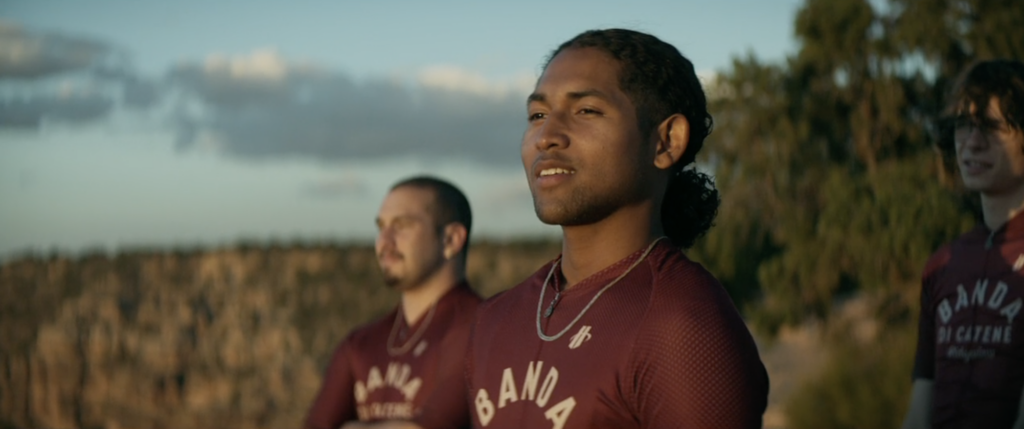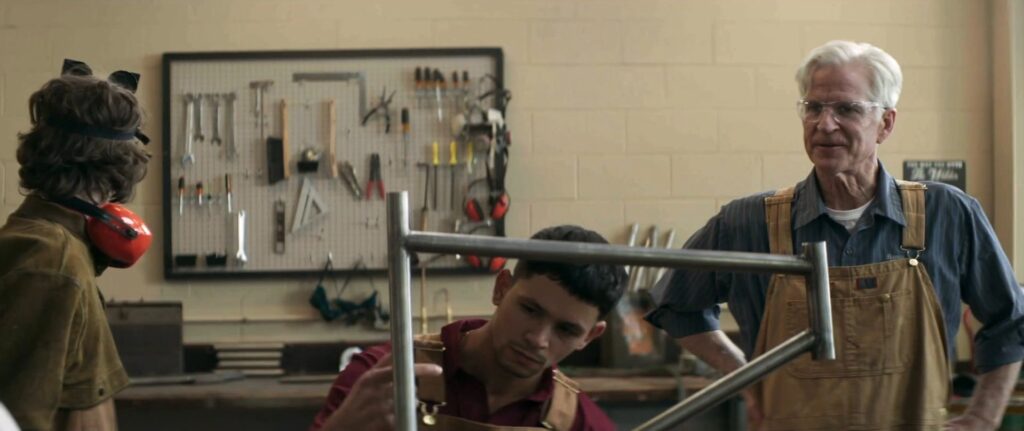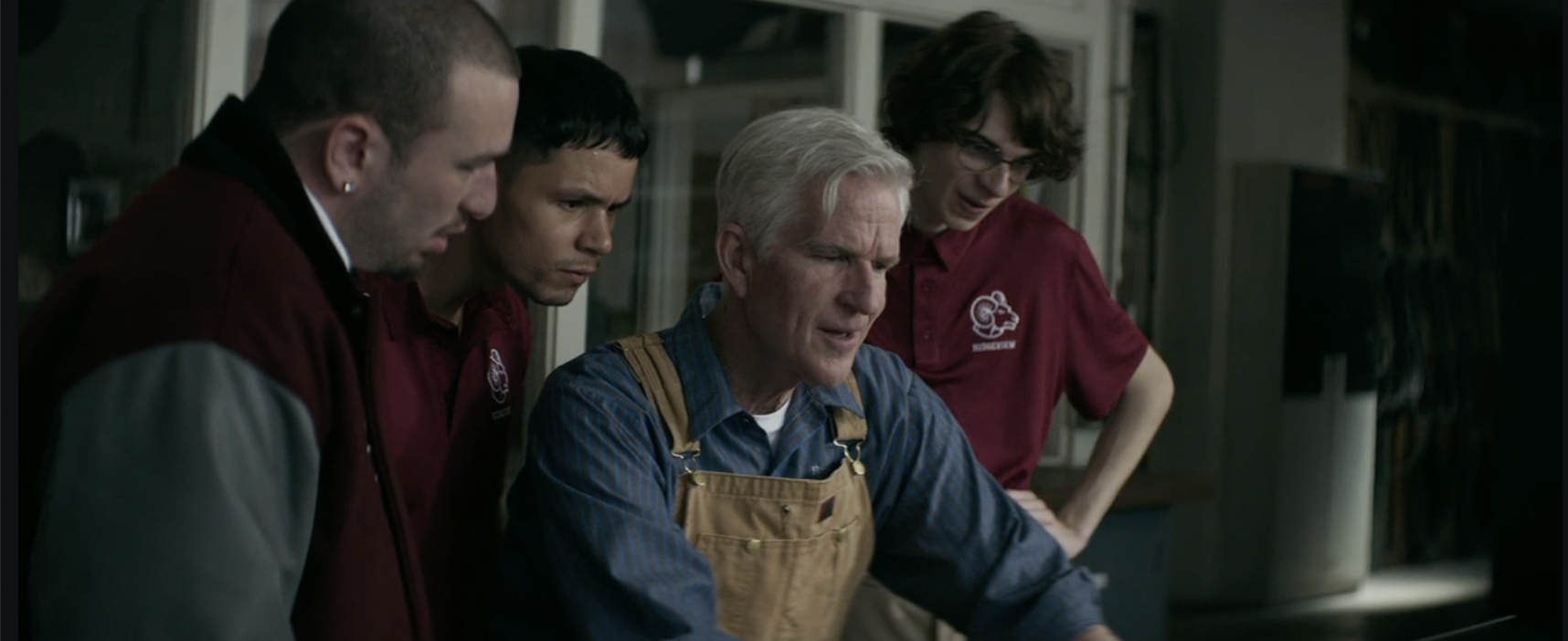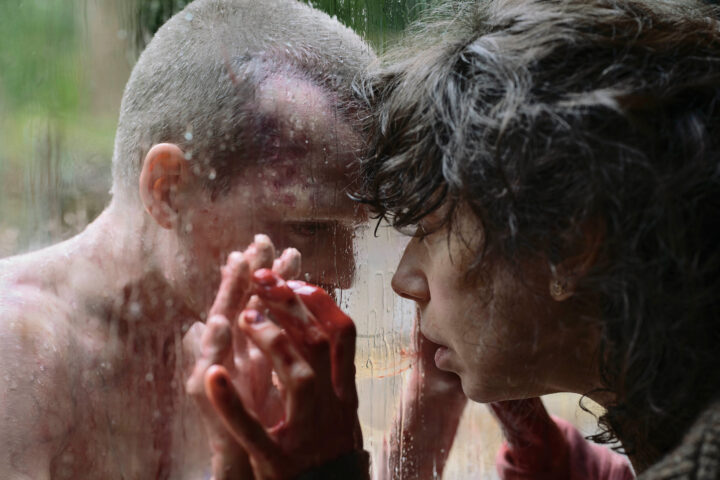In the new drama Hard Miles, Matthew Modine gets his best role in years as a transformative youth counselor guiding a cohort of troubled young men on an audacious 762-mile bicycle trek from Watkins, Colorado to the Grand Canyon—a journey designed to promote healing and life skills in at-risk youth and one both physically and emotionally arduous. Inspired by the real-life Greg Townsend, founder of the venerable Rite of Passage cycling mentorship program, Modine skillfully navigates a complex character defined by tough love and compassion, the actor’s signature wit and poignancy dominating this heartfelt picture, the very definition of a crowd pleaser.
Directed by R.J. Daniel Hanna (Miss Virginia) from a screenplay co-written with producer Christian Sander and based on true events, Hard Miles initially suggests an uplifting sports drama, but across 109 enjoyable minutes the film evolves into an engaging story of hard won redemption. It sincerely believes in second chances and human potential, particularly for troubled young men often unfairly judged by society. As Bryan Stevenson once wisely noted, they are “more than the worst thing they’ve ever done.”
We first meet Modine’s Greg Townsend on an early morning bike ride to attend a court hearing on behalf of a juvenile offender. As a dedicated social worker and youth advisor at Ridge View Academy, a medium-security correctional facility, Townsend’s mission-driven approach is evident from the outset. His impassioned plea in the courtroom sets the tone for both his character and the film as a whole: “He’s a sixteen-year-old boy sitting here. He has shown real promise. I’m begging the court to give him the chance to realize that promise.”

At Ridge View, Townsend’s role extends beyond counseling to that of a referee, mediating fistfights and anger issues to preempt disciplinary action. An unconventional coach, he embarks on the ambitious task of preparing four troubled students for the potentially life-altering cycling marathon. While pragmatic fellow counselor Haddie (the superb Cynthia Kaye McWilliams), doubts his methods, Skip (Leslie David Baker), the facility’s tough-minded boss, recognizes the potential for good publicity and much-needed funding: “We need a positive story right now; the donors love that kind of stuff.”
Townsend also teaches Ridge View’s welding courses to the same youth quartet, the students teeming with braggadocio and tough guy posturing, reluctantly joining their mentor’s “peloton” for his Tour de Greg (or Tour de Grand, he corrects). Skip cautions that the boys are “broken pieces, and try as we may to glue them back together, if we apply too much pressure they crack in the same places.” But single-minded Townsend has a master plan, coining the youths his Banda di Catene—or chain gang, he explains, like a bicycle chain—and planning to turn their anxieties into motivation, and then achievement, commanding them to “Push your anger through your feet! Your pain is anger!” Despite his proteges’ troubled pasts, which include truancy, car theft and gang banging, Townsend remains steadfast in his beliefs: “They’re not their rap sheets; they’re not lost causes.”
At this point the picture hits its stride, transitioning from the narrow confines of its correctional environs to a full-tilt, big sky vision of the American southwest (Monument Valley, Independence Pass and the Grand Canyon all co-star), an expanse presenting both immense physical challenges and opportunities for self-actualization. It takes awhile for the young men—including natural leader Woolbright (Jahking Guillory), gawkily insecure Mink (Jackson Kelly), temperamental Rice (Zachary T. Robbins) and hair-trigger Atencio (a fine Damien Diaz)—to drop their bravado and assume a team dynamic. But slowly, their growing connection to the landscape, each other and their dogged leader creates believable shifts.
The road to Grand Canyon redemption is one of endurance tests, and in a grueling sequence charting a vertical, uphill pedal over “the hardest mile,” Hanna effectively crosscuts traumatic flashbacks with the climb, suggesting the onerous mind and body work required to move beyond one’s comfort zone and process pain. Townsend, the abuse scarred former adolescent son of a raging father, is in need of his own healing, and must solitarily push through a hardest mile of his own.
No less troubled than his young charges, he has simply trained himself keep things buried; to continue moving forward. While Townsend’s physical problems include troubled tendons and heart issues, his psychological ones must reckon with the past. That past will return in a powerful reunion with his stricken father, a scene directed by Hanna and performed by Modine as a joint model of economy in technique and emotional modesty.

As the outwardly fearless leader, Modine, the four-decade star of an indelible 80s career canon including Vision Quest, Birdy and Full Metal Jacket, has always been an actor with the lightest of touch when it comes to humor and pathos, and here gives 2024’s to-date best male performance. As Townsend’s hard-driving persona gives way to final act humility and self-awareness, Modine infuses the character with appealing, open-hearted kindness.
Hard Miles calls to mind the 1979 Peter Yates classic Breaking Away in its youthful cycle camaraderie, but with a key difference—Hanna and Sander turn their likable anti-heroes inward, forging personal victories sans expected genre grandstanding, culminating not in finish line hurrahs but a simple, gratifying glimpse across the vast rim of a majestic canyon.
Special mention goes to cinematographer Mack Fisher, whose early, roving camera captures Townsend’s frenetic Ridge View challenges before opening up to resplendent American vistas, framed less as travelogue and more as imposing backdrops conspiring toward enlightenment. Fisher also offers a visually effective composition between Modine and the emotional Guillory, set atop a cliff and suggesting a marked shift in the balance of their relationship. Later, he shoots a touching two-character moment with fixed camera simplicity.
Some may perceive the veneer of Hard Miles to suggest formula, but formulas exist because they thrive in the world, inspiring audience recognition and identification. Yet like its young protagonists, the picture is more than such surface descriptions, striking exactly the right tone—goodhearted but not sugarcoated; inspirational without embellishment; moving minus the maudlin.
“We’ll do our best and everything will be fine,” Townsend assures at once key juncture. The same can be said about Hard Miles, a good story well told and one that believes in the better angels of collective humanity at an American moment increasingly defined by our differences.
3 stars



